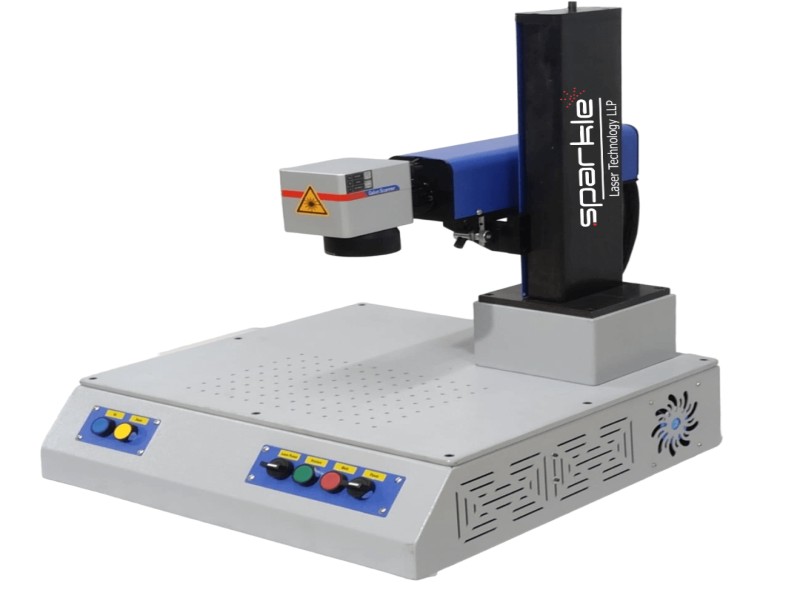In the realm of modern manufacturing, precision and efficiency are paramount. Laser Marking Machine have emerged as indispensable tools, revolutionizing the way products are marked, labeled, and branded across various industries. From automotive to electronics, medical devices to aerospace components, aser marking machines offer unmatched versatility, reliability, and precision. In this blog, we delve into the fascinating world of laser marking machines, exploring their technology, applications, benefits, and the transformative impact they have on industries worldwide.
Understanding Laser Marking Technology:
At the heart of every laser marking machine lies advanced laser technology. These machines utilize high-powered laser beams to etch, engrave, or mark various materials, including metals, plastics, ceramics, and even organic substances. The process involves directing the laser beam onto the surface of the material, where it interacts with the material's surface to create permanent marks without causing damage or deformation.
Types of Laser Marking Processes:
Laser marking machines employ different techniques to achieve various marking effects, including:
- Laser Engraving: This process involves removing material from the surface of the workpiece to create deep, permanent marks. Laser engraving is commonly used for intricate designs, serial numbers, logos, and decorative patterns.
- Laser Etching: Etching creates shallow marks on the surface of the material by altering its texture or color. It is ideal for creating high-contrast markings, barcodes, QR codes, and product identification codes.
- Laser Annealing: Annealing involves heating the surface of the material to create a contrasting mark without removing material. It is commonly used for marking metals such as stainless steel, titanium, and aluminum.
Applications of Laser Marking Machines:
The versatility of laser marking machines makes them indispensable across a wide range of industries and applications, including:
- Automotive Industry: Laser marking machines are used for marking serial numbers, VIN codes, part numbers, and logos on automotive components such as engine blocks, chassis, and transmission parts.
- Electronics Industry: In the electronics industry, laser marking is used for labeling PCBs, microchips, connectors, and electronic enclosures with product information, batch numbers, and regulatory markings.
- Medical Devices: Laser marking machines are utilized for marking medical devices, surgical instruments, implants, and pharmaceutical packaging with unique identifiers, lot numbers, and expiration dates to ensure traceability and compliance with regulatory requirements.
- Aerospace Industry: In aerospace manufacturing, laser marking is used for part identification, serialization, and traceability on aircraft components, engine parts, and avionics equipment.
Benefits of Laser Marking Machines:
- Precision and Accuracy: Laser marking machines offer unparalleled precision, allowing for the creation of intricate designs, small text, and high-resolution graphics with exceptional clarity and accuracy.
- Non-contact Process: Laser marking is a non-contact process that does not involve physical contact with the workpiece, reducing the risk of damage, contamination, or distortion of delicate materials.
- High Speed and Efficiency: Laser marking machines operate at high speeds, enabling rapid marking of multiple parts with consistent quality and efficiency, thereby increasing productivity and reducing production times.
- Permanent and Durable Marks: Laser marks are permanent, tamper-proof, and resistant to wear, corrosion, and fading, ensuring long-lasting identification and branding of products throughout their lifecycle.
- Versatility and Flexibility: Laser marking machines can mark a wide range of materials, shapes, and sizes, offering unmatched versatility and flexibility for diverse marking applications across various industries.
Conclusion:
Laser marking machines have become indispensable tools in modern manufacturing, offering precision, efficiency, and versatility across a wide range of industries and applications. From automotive to electronics, medical devices to aerospace components, laser marking machines play a crucial role in product identification, branding, traceability, and compliance with regulatory requirements. As technology continues to advance, laser marking machines will continue to evolve, driving innovation and transformation in manufacturing processes worldwide.





Comments